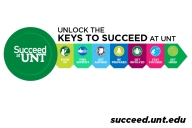You have /5 articles left.
Sign up for a free account or log in.
In a video gone viral, a first-year Cornell University student, Emery Bergmann, is curled up on her bed, hunched over her phone, lamenting how she hasn’t found friends on her new campus.
“I feel like everyone else has kind of found their squad. Like, people walk around in big posses and I definitely don’t have that,” Bergmann narrates in the video, a class project that dealt with the loneliness she felt as a new student. “I feel more like a planet in the solar system, and, like, I know people and I say hi to them when I pass by them, but sometimes that’s kind of it.”
Bergmann captures a problem that student affairs professionals and counselors say is not new among college students, though today’s crop has to deal with much more than just making friends with their fellow students down the hall.
Political anxieties abound on campuses, particularly exacerbated by the Trump administration’s policies and positions. Controversial speakers appearing at public institutions has become near par for the course in some places, significantly disrupting the campus flow. And of course, students still face trouble locating jobs and affording college -- much more than previous generations.
While these issues do suck up much of the oxygen and attention of college officials, in interviews they said the more traditional mental health problems, such as feelings of isolation among freshmen, persist.
Perhaps that’s why Bergmann’s video has attracted so much attention -- it’s been featured on the Today show website and viewed more than 87,000 times since it was published a little more than a week and a half ago.
While the press has focused on controversial topics in higher education -- such as free speech on campus -- campus officials have done “quiet work” on addressing engaging students and ensuring that they take care of their mental well-being, said Kevin Kruger, president of NASPA: Student Affairs Administrators in Higher Education. When a student connects to campus and develops a social life, they will do better academically, Kruger said.
Much more now, colleges and universities are training their professors and their staff members to serve as an ear for students and teach them how to direct students to resources like a counseling center, Kruger said.
Especially at larger institutions, students can become invisible, so talking to the people closer to them -- their professors -- can be beneficial, he said. Removing the stigma around seeking mental health treatment is also key, he said, citing the fact that many students don’t take advantage of a counseling center willingly.
At two-year institutions, such as Santa Fe Community College, this is particularly true, in part because students don’t live on campus, said Janelle Johnson, the senior counselor there, and president-elect of the American College Counseling Association.
Santa Fe has deliberately tried to work with professors because they’re often the first to notice when a student is struggling, she said.
At the community college, where many are first-generation college students, some may encounter a different type of loneliness, Johnson said. Many of their friends may not be enrolled in college, and so there’s an “experience gap,” she said. Students attend class not to make friends, and they're not often asking their classmates out for coffee, she said, which is why the college tries to recruit them into groups where they can meet people.
Johnson said because the college is located in New Mexico, it enrolls many Dreamers, the students protected by Deferred Action for Childhood Arrivals, or DACA, which President Trump has announced he will rescind. These students aren’t always worried about themselves -- if they graduated from a New Mexico high school, they’re eligible for certain scholarships even if they don’t qualify for federal aid, Johnson said. They’re worried for their family members who are undocumented.
The college is trying to help students learn “mindfulness in education,” a buzzy way of saying they should live in the moment. This applies particularly to students’ penchant for their cellphones.
“They’re not present if they’re, like, ‘oh, I’m meeting my friends later,’ or going to the club … or whatever these events are,” Johnson said. “Students a lot don’t stay present, and that can contribute to the loneliness. And the kind of lifestyle we want for a college student is being present, with new experiences, and meeting new people.”
When students are more invested in their phones than the world around them, the more “beneficial” pieces of human contact are lost, said Christopher Corbett, director of counseling and student support services at the Savannah College of Art and Design and past president of the American College Counseling Association.
Many students won’t share their experiences, though, so the college has tried grouping freshmen in their residence halls with the same students in their classes, Corbett said.
Institutions have grappled with this problem, especially in light of the new politically related tensions, and it’s up to each individual college or university on what they want to prioritize, Corbett said.
“It’s really hard to spend those resources in such a way that every single student feels similarly connected,” he said. “It’s just a matter of math, and some of the really hard decisions administrators have to make.”








